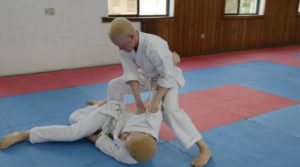by Philip Richards
Athletics at the Tokyo Olympics
Tanzania was represented at the Tokyo Olympic Games, held from July 23 to August 8 this year, by only three athletes, who unfortunately returned home without medals. It has been 40 years since the nation last stood on the podium (the Moscow 1980 Games when two silvers were won) and at that time Tanzania sent 41 athletes in total.
In Tokyo, all three athletes participated in the marathon. Alphonce Simbu was placed seventh in the men’s marathon (2:11:35) whilst Gabriel Gerald Geay did not finish the race, The third and only female Tanzanian athlete, Failuna Abdi Matanga (2:33:58) was placed 24th in the women’s race.
By contrast, other East African nations fared much better. Kenyan participants won four Gold, four Silver and two Bronze medals, while the Ugandans won two Gold, one Silver and one Bronze medal.
The obvious observation, echoed by the media (including The Citizen 17/8/21) is that this situation poses some “difficult questions”. Is there a coherent sports policy in the country and is it being implemented effectively, is there an effective funding mechanism for sports and do sports officials have the management capability to effectively identify and harness the talent in the country?
Clearly, short term expectations need to be managed, and hopes of success at the next Paris Games in three years’ time seem unlikely to be realised, but long term and focused investment in sport (other than football) is undoubtedly required.
Football
Taifa Stars, the national men’s team, have climbed up six positions in the latest world rankings released by the Federation of International Football Association (reports Daily News 13/8/21)
The leap has been attributed to Taifa Stars recent victory over Malawi Flames. Under Danish coach Kim Poulsen, they emerged with a 2-0 victory. Though this was only an international friendly match, hopes are for further victories in official competitions.
The latest ranking places Taifa Stars 135th globally, 39th in Africa. As a comparison, Senegal are ranked number 1 in Africa and 21st globally. They now head to face Congo DR (ranked 65th) and Madagascar (97th) next month in the World Cup Qualifiers-Africa (WQA) on the road to the finals in Qatar in 2022.
Tanzania’s albinos set sights on Paralympics
Deogratias Ngonyani, a 33-year-old man with albinism, is a regular visitor to the karate training room at the Albinism Sports Club in the capital Dar es Salaam.
As well as keeping fit, he says his ambition is to participate in the Paralympic Games within the next five years, proving to the world that with determination, people with albinism could break through into international competition. The Club, which has 11 albino members, also provides opportunities to be coached and compete in football and athletics.
Mr Ngonyani was quoted as saying: “At the moment our chance of participating in international sports competition is very slim, and Tanzania’s albinos have never participated in such competitions”
Over the years, people in Tanzania with albinism have been subjected to discrimination and brutality, driven by the belief that their body parts possess and can transmit magical powers. However, the government has recently pledged to provide full protection of people with albinism by reinforcing their security; it was reported that Ummy Hamisi Nderiananga, the deputy minister of state in the Prime Minister’s Office responsible for persons with disabilities, said people with albinism should feel safe because their protection remained the government’s priority agenda. (EA News)

